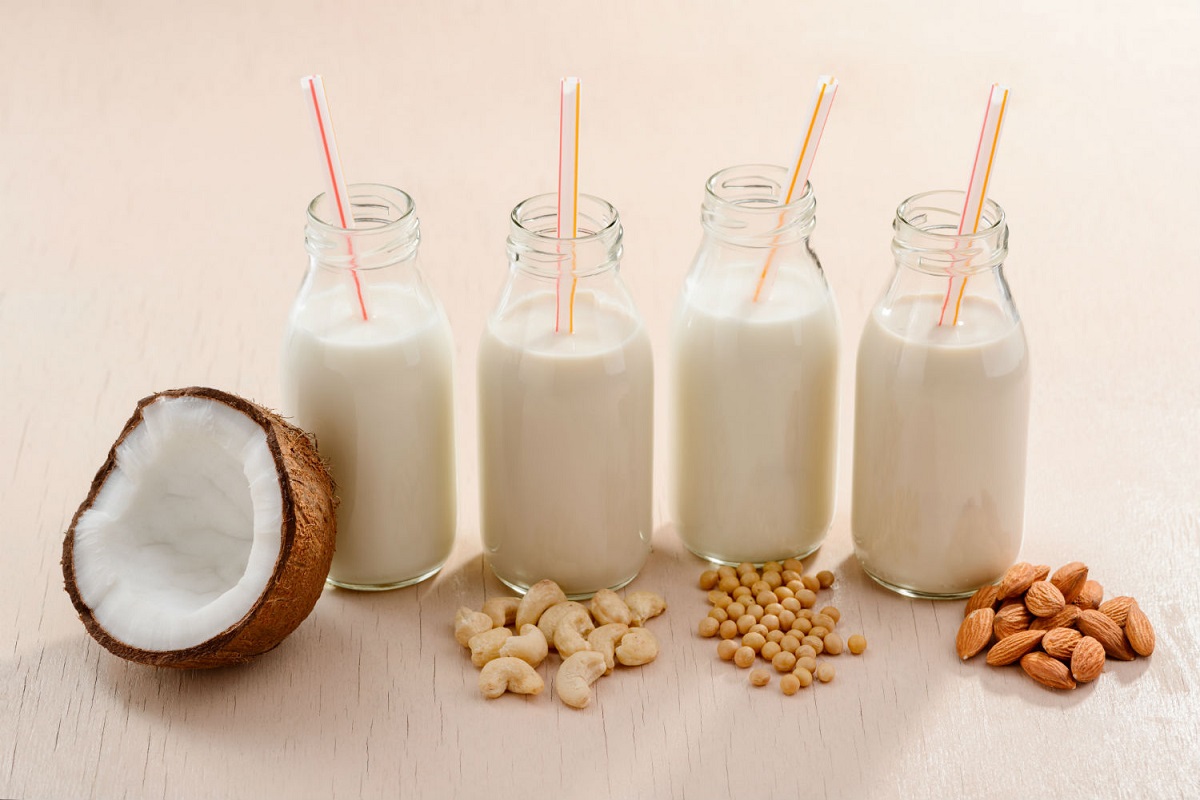Facts About Plant-Based Milks: Are They Better Than Cow’s Milk?

Plant-Based Milks: Cow’s milk remains highly nutritious, but one of the key reasons for promoting plant-based alternatives is concern over the environmental impact and animal welfare issues related to dairy production.
The Rise Of Plant-Based Milk

Plant-Based Milks, In recent years, there has been a surge in advertising for plant-based milk alternatives. But are all plant-based milks truly better than cow’s milk?
According to a New York Post report quoting Dr. Zac Turner, there are several important facts about both cow’s milk and plant-based options that may not be widely known.
Plant-Based Milks, When asked by a café owner whether the widespread use of plant-based milk is due to actual dairy intolerance or just a passing trend, and whether these alternatives are actually healthier than cow’s milk, Dr. Turner first acknowledged that issues like lactose intolerance and dairy allergies are real. Many people opt for oat milk or other plant-based alternatives to avoid digestive discomfort. However, it is undeniable that some people simply follow the trend without any health concerns.
Cow’s Milk
Plant-Based Milks, For decades, cow’s milk has been considered the gold standard of nutrition because it is a rich source of protein, calcium, and essential vitamins like A, D, and B12. These nutrients are crucial for strong bones, energy levels, and immune system support.
Plant-Based Milks, In the past, milk was produced on small, sustainable farms where cows lived under hygienic conditions with natural feeding, leading to high-quality milk. However, modern large-scale dairy farming has raised environmental concerns, including high water and land usage and significant greenhouse gas emissions—particularly methane.
Dr. Turner emphasizes that, nutritionally, cow’s milk remains one of the best options. However, given its environmental impact, shifting towards smaller, more sustainable farms that prioritize animal welfare and regenerative farming practices could help reduce its negative effects.
Types Of Plant-Based Milk

Almond Milk
Plant-Based Milks, Almond milk is a low-calorie plant-based milk that is often fortified with calcium and vitamin D since these nutrients are not naturally present in it. However, from a nutritional standpoint, it is quite weak, containing only about 1 gram of protein per 100 milliliters.
One of the biggest downsides of almond milk is its environmental impact. Producing 1 liter of almond milk requires approximately 371 liters of water, making it one of the least sustainable options.
Plant-Based Milks, Additionally, large-scale almond farming heavily relies on commercial beekeeping for pollination. The use of pesticides and the stress of intensive pollination have led to declining bee populations.
So, if your main concern is sustainability and environmental impact, almond milk is one of the worst choices.
Soy Milk
Plant-Based Milks, Soy milk is one of the most nutritionally balanced plant-based options, containing 3 to 4 grams of protein per 100 milliliters, making it much closer to cow’s milk in terms of protein content. Research shows that due to its high protein levels and the ability to be fortified with calcium and essential vitamins, soy milk is a beneficial choice.
From an environmental perspective, while soybean cultivation has contributed to deforestation in some regions, most soy milk is sourced from sustainable, non-GMO crops. Additionally, soy milk production requires significantly less water than almond milk and does not impact pollinators like bees.
Oat Milk
Plant-Based Milks, Oat milk has gained popularity due to its creamy texture and lower environmental impact. It contains 1 to 2 grams of protein per 100 milliliters, which is lower than soy milk but still a reasonable alternative to dairy.
When it comes to sustainability, oat milk is one of the best plant-based choices. It requires much less water than almond milk, produces lower greenhouse gas emissions, and does not depend on bee pollination.
Plant-Based Milks, However, some commercial oat milk brands contain added oils and sugars, which can reduce its health benefits.
Conclusion
Plant-Based Milks, While cow’s milk remains a highly nutritious choice, its environmental impact has led to increased interest in plant-based alternatives. Among plant-based options, soy milk offers the best balance of nutrition and sustainability, while oat milk is the most environmentally friendly. Almond milk, despite being popular, has significant environmental drawbacks.
Ultimately, the best choice depends on your personal dietary needs and sustainability priorities.
Also Read:
The 3 Kind Of Foods That Help With Weight Management
Is Black Coffee Beneficial? Discover The Health Perks Of Drinking One Or More Cups Daily
The 8 Health Benefits Of Consuming Banana And Milk In The Morning




